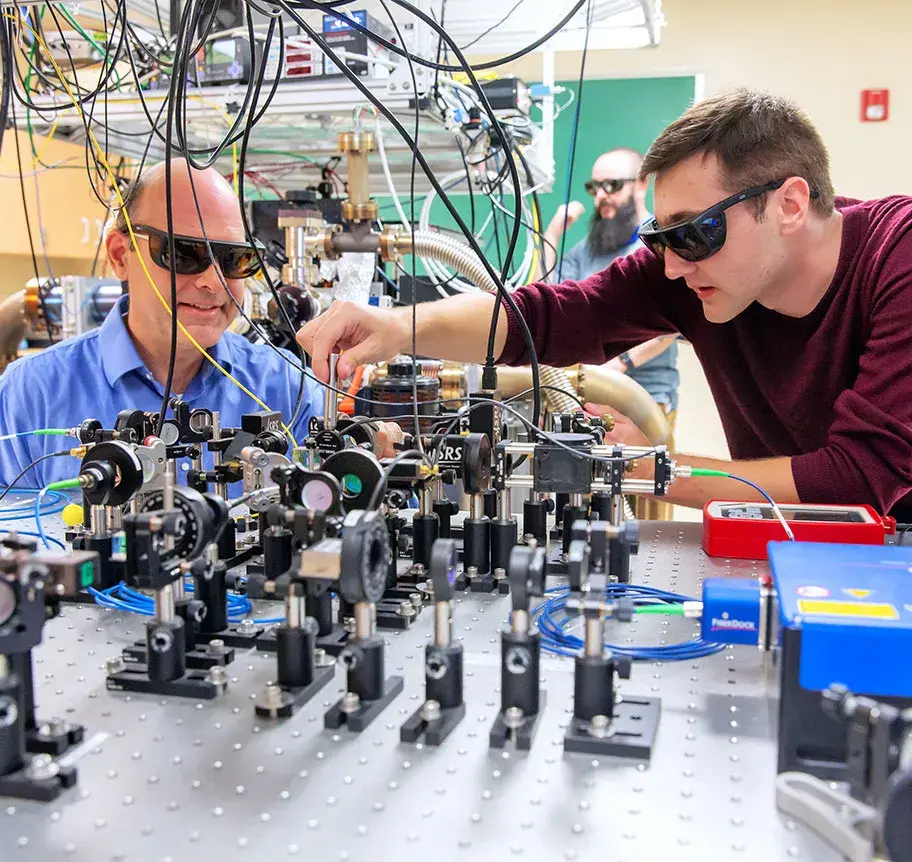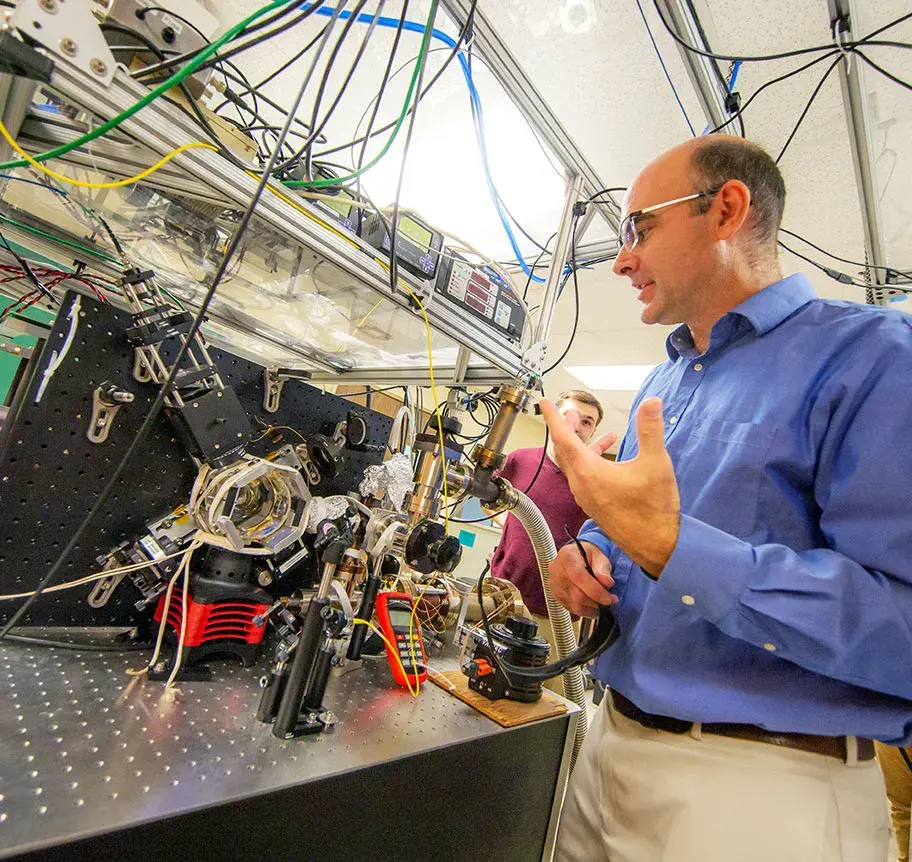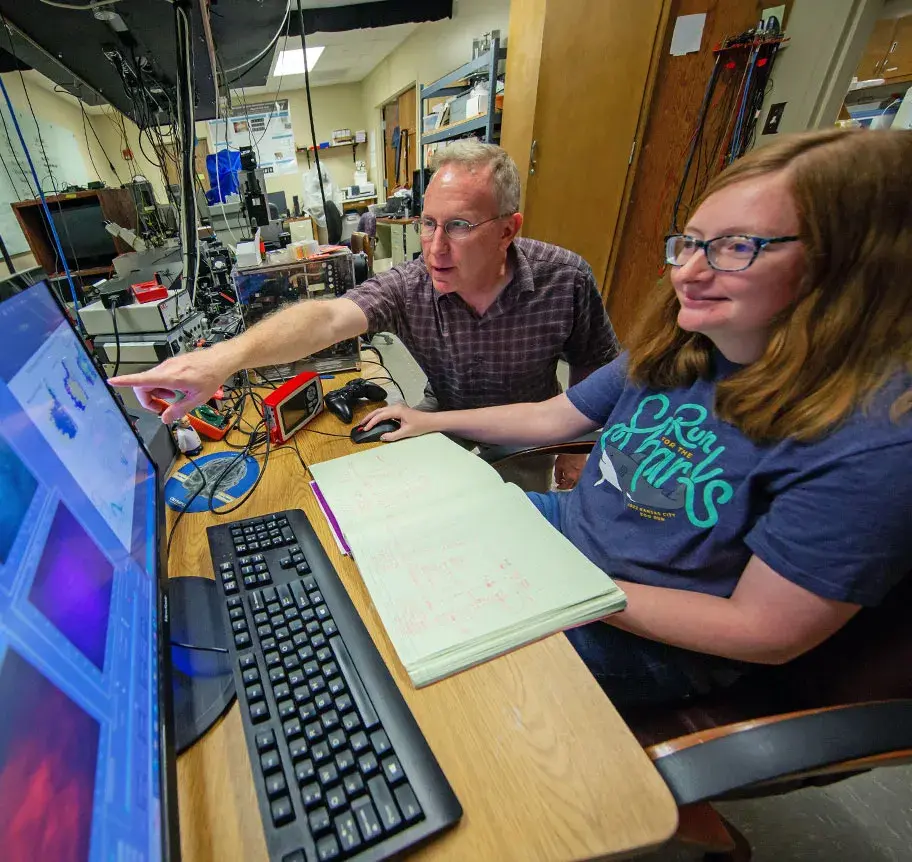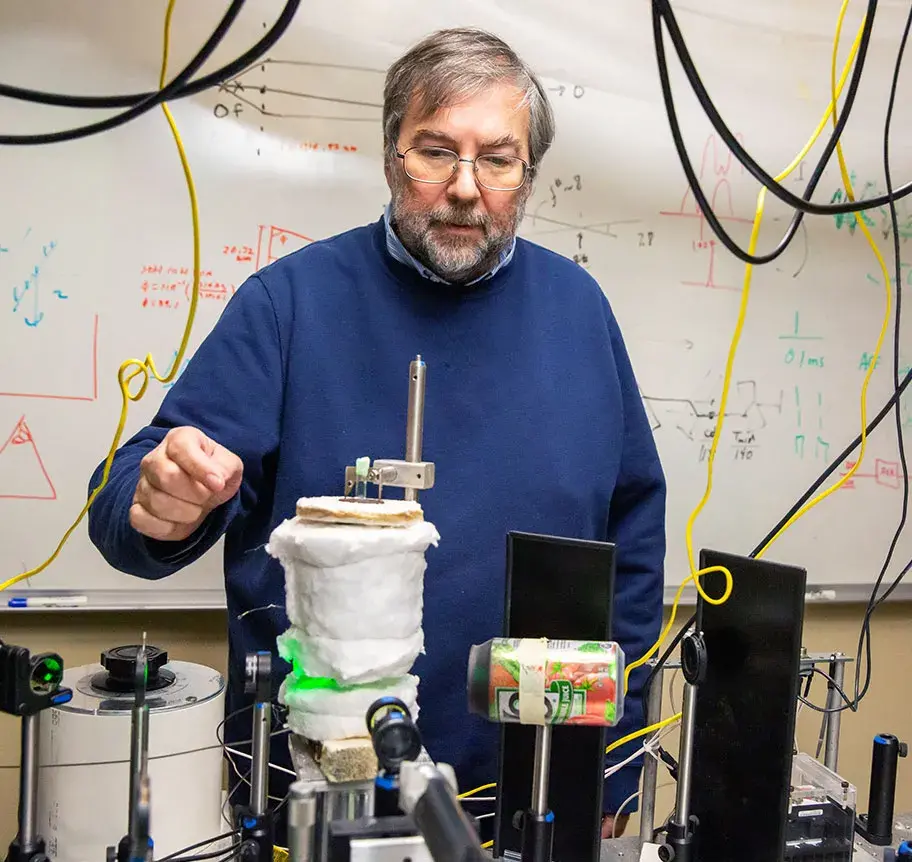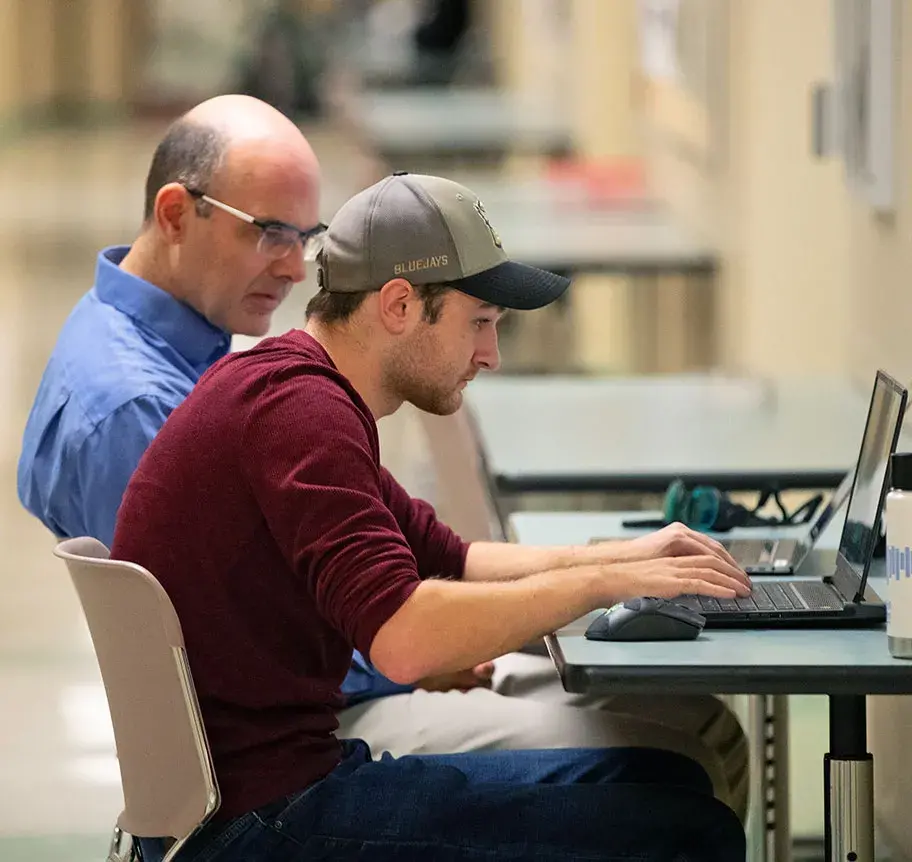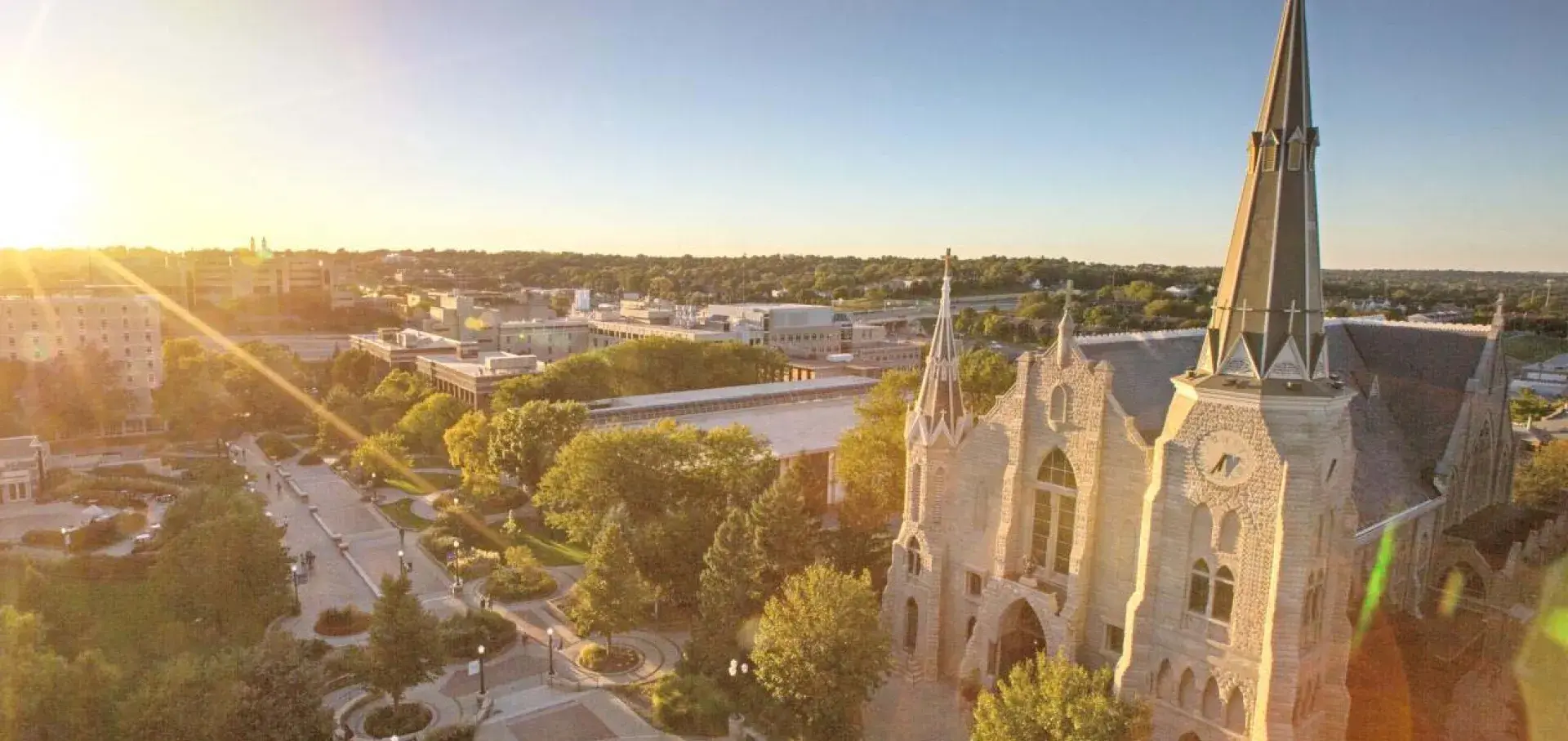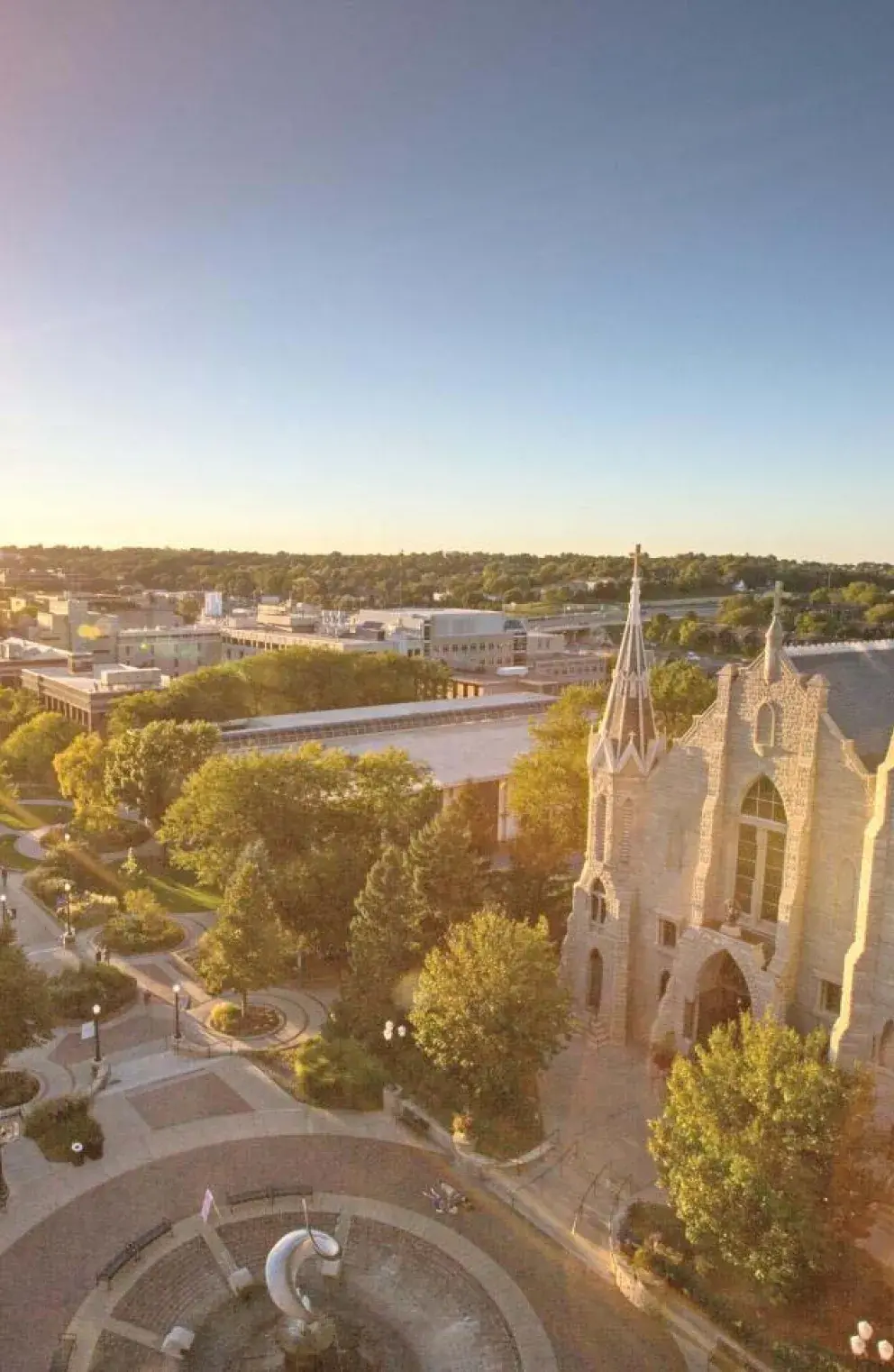
Physics (Master of Science)
Further your understanding of everything around you and how things function through Creighton University’s Master of Science in Physics. Coursework applies to a variety of careers and academic pursuits, and can be customized to your own educational and career goals—whether that’s earning a doctoral degree, a career in secondary or post-secondary education, or a wide variety of roles in research, engineering, data analytics, material science and more.
No matter your interests, you’ll have the opportunity to learn from experts in their research fields. Our faculty bring a broad wealth of knowledge to the program and are actively engaged in research in various fields such as astrophysics, quantum computing, nuclear physics, alternative energy, medical physics, material science, biophysics, and biomedical optics.
Invest in yourself
An advanced degree is a big investment of your time and money. Creighton makes sure every credit hour is worth it, preparing you for future academic and professional success. It may not take as long as you think—Creighton’s physics graduate program can be completed in two years by full-time students. Most classes can be scheduled to accommodate working students who wish to complete the program on a part-time basis.
Fellowships can ease the financial burden of pursuing a graduate degree. Research and teaching fellowships are awarded to some students in Creighton’s master’s program in physics each year. Those selected receive a cash stipend and full remission of tuition during their fellowship.
Entering consideration for a teaching or research fellowship is as easy as applying to Creighton. Once you submit your graduate school application, you’re automatically considered for a teaching or research fellowship.
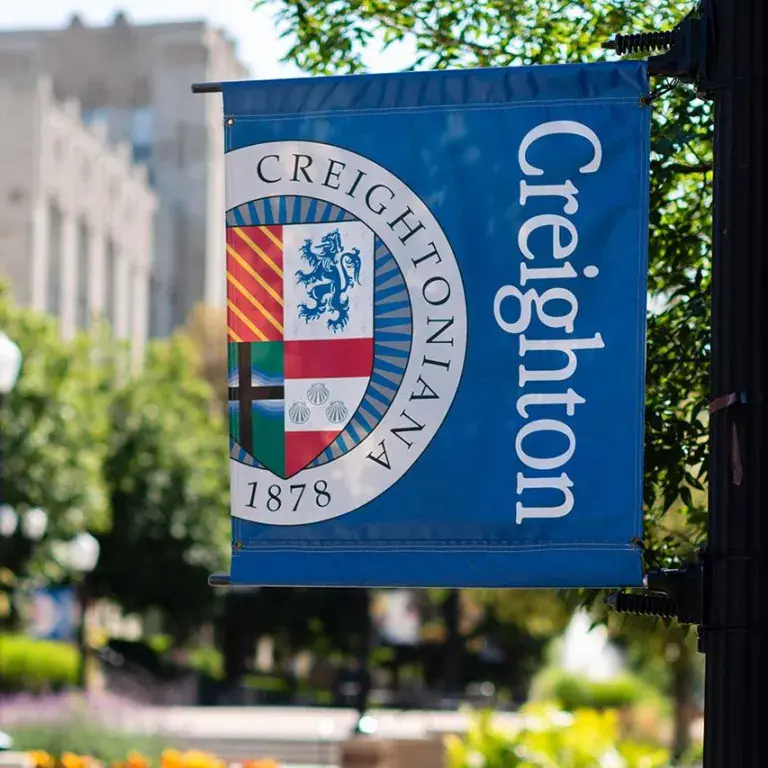
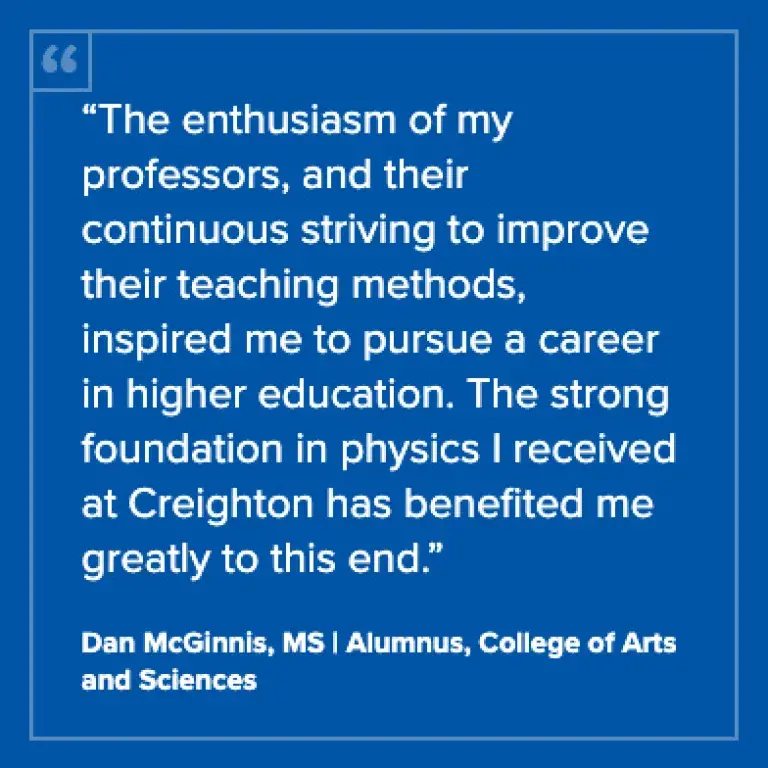
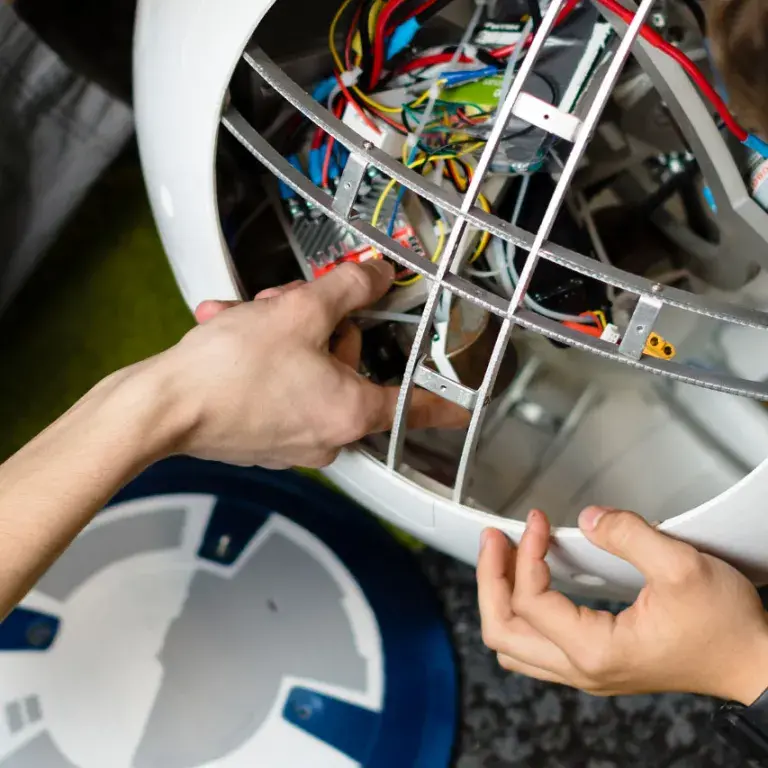
Program Details
Program Goals and Curriculum
The MS in Physics is ideal for those pursuing a career in physics, including education, academic research, engineering, data analytics, insurance, material science and various other technical fields. It also provides a solid foundation for those interested in pursuing a doctoral degree.
To earn this physics degree, you must complete 30-33 credits:
- Required Courses
- Classical Mechanics
- Electromagnetic Theory
- Quantum Mechanics I
- Statistical Mechanics
- Graduate Seminar
Students can choose between a thesis option and a non-thesis option.
- Thesis Option
- 8 credits of elective courses
- Master’s thesis: Students select a thesis advisor, develop a plan of study, and work with a thesis committee to complete this option. After a student and thesis advisor defines the research project, the thesis committee reviews progress, reads and approves the final thesis, and administers the final oral defense.
- Non-Thesis Option
- 17 credits of elective courses
Faculty
Faculty in the MS in Physics program are experts in a variety of fields and have published a wide breadth of research. They are more than teachers, acting as advisors and mentors throughout your graduate school journey to help you reach your academic and personal goals.
Admission Requirements
To be considered for admission to the MS in Physics program, applicants must:
- Complete an application and submit a $50 application fee
- Possess a bachelor’s degree with 3.0 GPA or higher
- Include coursework in classical mechanics, electromagnetism, statistical mechanics and thermodynamics, and quantum mechanics, and mathematics (Calculus, Linear Algebra, and Differential Equations)
- Provide official transcripts from all educational institutions attended. Read more about sending transcripts here
- Provide a resume/CV
- Submit a personal statement: 300-500 words that explains why you’re interested in Creighton and this program in particular, as well as what you plan to do with your degree
A personal interview may be requested in addition to the above requirements. The interview may be conducted in-person or virtually.
International students are welcomed into this program and F-1 visas will be supported upon admission.
International applicants must:
- Meet English language proficiency requirements
- Complete and submit a Certification of Available Finances Form through the Global Engagement Office if admitted
Tuition & Financial Aid
Tuition rates change in the fall of each year. Visit our financial aid site for more details.
Fellowships
Fellowships are awarded to students in Creighton’s Master of Science in Physics program each year. All applicants for this program are automatically considered for a teaching or research fellowship. No additional application is required.
Graduate fellows receive full tuition remission and a cash stipend. Tuition remission is also extended to fellows in the summer sessions adjoining the fellowship year. Teaching and research fellows are required to provide the equivalent of 18 hours per week of service. Fellows must take a minimum of 8 credit hours per semester.
Award recipients are normally notified with the offer of admission. Fellowship appointments may be renewed for a second year upon recommendation of the department.
Financial Aid
To help make your graduate studies at Creighton University more affordable, we encourage you to file the FAFSA to apply for financial assistance. We also encourage you to apply for available graduate student scholarships and fellowships.
Still have questions? Email or call a friendly financial specialist at 402.280.2731 for any additional questions you may have.
Dates and Deadlines
The tables below detail the enrollment deadlines and starting dates of courses for the current academic year. If you have any questions about dates, deadlines, or application materials, please contact an admissions advisor for personalized assistance.
ON-CAMPUS
|
START CLASSES IN |
APPLY BY |
|
August |
July 15 |
|
January |
December 1 |
International students should apply three months before the application deadline. Fellowships are offered to qualified applicants as soon as the application is reviewed, so it is recommended that applications be completed ahead of the deadline (May 1 for August start, or September 1 for January start).

